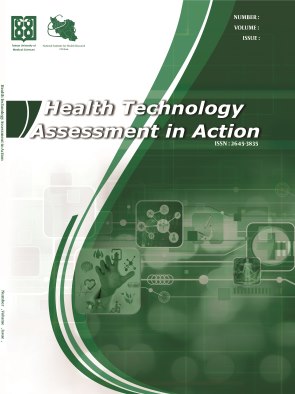Editorial for the Special Issue on “The Role of Accreditation in Improving Healthcare Systems Performance”
Abstract
The World Health Organization’s annual report in 2000 sparked a global trend of assessing and improving healthcare performance indicators. These performance indicators provide tangible measures of the performance of health systems and healthcare institutions. Ranking countries based on these indicators has been a smart and strategic decision to focus the attention of health managers and policymakers on improving them. These performance indicators include quality, safety, equity, public health coverage, service continuity, comprehensiveness, accessibility, and etc. These indicators’ positive trajectory demonstrates the gradual attainment of the health system’s mission and objectives. An often-seen strategic error in health system administration, particularly in developing nations, is the excessive allocation of funds to physical infrastructure and the acquisition of costly equipment. This expense diminishes the resources that could be allocated to performance indicators improvement.
2. Tabrizi JS, Gharibi F. Developing National Functional Accredita-tion Model for Primary Healthcares with Emphasis on Family Practice in Iran. Korean J Fam Med. 2021;42(3):232-9. [PubMed ID:33781061]. [PubMed Central D:PMC8164929]. https://doi.org/10.4082/kjfm.20.0011.
3. Hussein M, Pavlova M, Ghalwash M, Groot W. The impact of hos-pital accreditation on the quality of healthcare: a systematic literature review. BMC Health Serv Res. 2021;21(1):1057. [PubMed ID:34610823]. [PubMed Central ID:PMC8493726]. https://doi.org/10.1186/s12913-021-07097-6.
4. Tabrizi JS, As’habi A, Nazari M, Ebrahimi Tavani M, Haghi M, Gharibi F. Impacts of accreditation on the performance of pri-mary health care centres: A systematic review. Malays Fam Physician. 2023;18:63. [PubMed ID:38026575]. [PubMed Central ID:PMC10664760]. https://doi.org/10.51866/rv.274.
5. Gharibi F, Moshiri E, Tavani ME, Dalal K. Challenges of Imple-menting an Effective Primary Health Care Accreditation Pro-gram: a qualitative study in Iran. BMC Prim Care. 2023;24(1):270. [PubMed ID:38093194]. [PubMed Central ID:PMC10717432]. https://doi.org/10.1186/s12875-023-02232-0.
6. Tabrizi JS, Gharibi F, Dadgar E. Developing a Departmental Ac-creditation Model for Primary Healthcare in Iran. Middle East J Rehabil Health Stud. 2021;8(2). https://doi.org/10.5812/me-jrh.110127.
7. Shaw CD. Toolkit for Accreditation Programs. Melbourne; Austra-lia: International Society for Quality In Health Care; 2004. [Cit-ed:2023]. Available from: http://www.pro-qaly.hu/files/userfiles/File/letoltes/Dokumentumok/ISQuaAccreditationToolkit.pdf
| Files | ||
| Issue | Vol 8 No 3 (2024) | |
| Section | Editorial | |
| DOI | https://doi.org/10.18502/htaa.v8i3.16401 | |
| Keywords | ||
| Health System Performance Indicators Accreditation | ||
| Rights and permissions | |

|
This work is licensed under a Creative Commons Attribution-NonCommercial 4.0 International License. |




